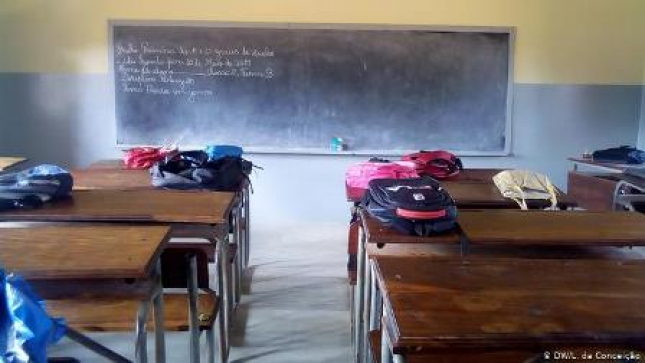Norway and UNFPA strengthen vital support for women and girls with new USD 2.8 million agreement ...
Covid-19: More than eight million students return to classes in Mozambique

FILE - For illustration purposes only. [File photo: DW]
More than eight million students from the first to the 12th grade will restart classes in Mozambique on Monday, in an atypical context marked by subdivision of classes, classes for alternating groups and classes on Saturdays.
About two million of these pupils are in Grade 1, and will be going to school for the first time.
Gina Guibunda, spokeswoman for the Ministry of Education and Human Development (Minedh), told Lusa that the number of students per classroom would not exceed 25, to allow for 1.5-metre social distancing.
This will entail the division of classes, taking into account the overcrowding that normally characterises classrooms in the country, she said. Class sizes in Mozambique can reach 75, a number that makes the necessary physical distance in the context of Covid-19 impossible.
Guibunda said that students would be able to take classes on Saturdays where the splitting of classes prevented the achievement of weekly academic goals. “Extra remuneration for teachers with classes on Saturdays is being considered, but there is still no decision in this regard,” she said.
Within the scope of coronavirus prevention measures, Physical Education, Music Education and English classes have been cancelled in primary education, while in secondary schools, Notions of Entrepreneurship, Agribusiness, Information and Communication Technologies and Tourism will not be taught.
Teaching time per day is also being reduced by half an hour, from a maximum of five hours to four-and-a-half hours.
Guibunda said that “there is a great probability” that evening courses will remain suspended, continuing the interruption decided upon last year, when students adopted distance learning modalities.
“The scenario for students in the evening course is being considered, but there is a greater likelihood that students will study at a distance, which is a practiced technique in the country,” the MINEDH spokeswoman said.
Guibunda admitted that classes would not start in some schools on Monday because of lack of water and sanitation conditions in the context of Covid-19 prevention, emphasising that everything was being done to normalise the situation in all educational establishments.
“Health security conditions in schools are being created and will continue to be created until the entire school environment is safe,” Guibunda said. School boards had been instructed to use 30% of their budget to create water and sanitation conditions, with a view to preventing Covid-19, she added.












Leave a Reply
Be the First to Comment!
You must be logged in to post a comment.
You must be logged in to post a comment.